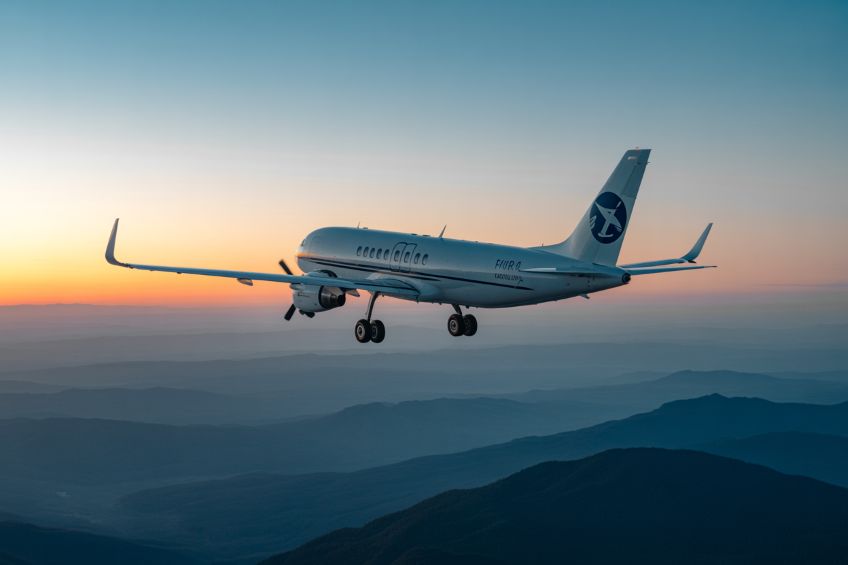Published on
October 20, 2025
By: Paramita Sarkar
In a concerted effort to combat climate change and reduce aviation emissions, several countries and airlines have launched ambitious Sustainable Aviation Fuel (SAF) initiatives. Qatar, Australia, Indonesia, Singapore, and Spain’s Iberia are at the forefront, implementing policies and programs to accelerate the adoption of SAF in their aviation sectors.
What Is Sustainable Aviation Fuel (SAF)?
Sustainable Aviation Fuel (SAF) is a biofuel derived from renewable resources such as waste oils, agricultural residues, and other biomass. SAF can reduce carbon emissions by up to 80% compared to conventional jet fuel, making it a crucial component in the aviation industry’s strategy to achieve net-zero emissions by 2050.
Where Are These SAF Initiatives Being Implemented?Qatar
Qatar Airways has committed to achieving net-zero carbon emissions by 2050 and is actively working with industry stakeholders to accelerate the adoption of SAF. In 2022, Qatar Airways signed a deal with Shell to source 3,000 metric tonnes of neat SAF at Amsterdam Schiphol Airport, marking a significant step in its SAF procurement efforts. Additionally, Qatar Airways is the first carrier in the Middle East to join the International Civil Aviation Organization‘s (ICAO) Global Coalition for Sustainable Aviation, reaffirming its commitment to sustainable aviation practices.
Australia
Australia is investing in the development of a domestic SAF industry through a $30 million funding initiative announced by the Australian Renewable Energy Agency (ARENA) in July 2023. This initiative aims to reduce emissions in the aviation sector by supporting the production of SAF from agricultural feedstocks. The Australian government recognizes aviation as a “hard-to-abate” industry and is leveraging its bioenergy sector to unlock market opportunities for SAF production.
Indonesia
Indonesia plans to introduce a 1% SAF blend for international flights by 2026, with a gradual increase to 5% by 2035. The Indonesian Ministry of Transportation is currently drafting regulations to implement this SAF adoption timeline. This initiative aligns with Indonesia’s broader strategy to reduce carbon emissions from the aviation sector and promote the use of renewable fuels.
Singapore
Singapore is implementing a flight levy to boost the use of SAF, effective from 2026. The Civil Aviation Authority of Singapore (CAAS) announced that all international flights departing from Singapore will be mandated to use SAF starting in 2026. The levy aims to provide an incentive for airlines to invest in SAF production facilities and accelerate the transition to greener aviation fuels.
Spain (Iberia)
Iberia Airlines has launched the “SAF Circle” initiative, a program designed to help companies reduce the environmental impact of their air travel by supporting the use of SAF. Companies participating in the program can purchase SAF for their flights, helping them offset the carbon footprint of their business travel. The SAF used in the program is produced at Repsol’s Cartagena plant, which can produce up to 250,000 tonnes of SAF per year.
When Will These SAF Initiatives Take Effect?
Each of these initiatives has a clear timeline for implementation. Spain’s Iberia SAF Circle program has already launched, and businesses can begin purchasing SAF for their flights as of October 2023. Singapore’s flight levy was introduced in 2023 and is set to expand as more airlines adopt SAF in the coming years. Indonesia’s SAF blend for international flights is scheduled to roll out by 2026, marking a major milestone in the country’s commitment to sustainable aviation.
These policies are designed not only to help airlines meet their sustainability goals but also to provide the necessary infrastructure and financial incentives to make SAF more accessible and affordable for both airlines and passengers.
Why Is Green Aviation Important?
The push for sustainable aviation is essential for addressing the environmental impact of the aviation industry. Air travel accounts for a significant portion of global carbon emissions, and without substantial changes, the sector will struggle to meet international climate goals. SAF is one of the most promising solutions, as it can significantly reduce emissions while maintaining the performance and safety standards of conventional jet fuel.
In addition to its environmental benefits, SAF represents a new frontier in energy production and biofuel technology. The growing demand for SAF will drive innovation and investment in biofuel production, creating new opportunities for businesses and communities in renewable energy sectors.
How Are Other Countries Responding?
Alongside Spain, Singapore, and Indonesia, other countries are also taking significant steps to promote SAF use. The United States, for example, has been working to ramp up SAF production through government incentives and partnerships with private sector stakeholders. The European Union is investing heavily in SAF research and development, with a goal to ensure SAF accounts for at least 5% of aviation fuel consumption by 2030.
In addition, Australia, Japan, and South Korea are also making strides in integrating SAF into their aviation industries. These countries have recognized the potential of SAF as a key component of their environmental strategies, aligning with international commitments to reduce carbon emissions across all sectors.
Conclusion
As countries like Spain, Singapore, and Indonesia lead the charge in integrating sustainable aviation fuels into their air travel systems, the push for greener skies is gaining momentum globally. With the aviation industry responsible for a significant share of carbon emissions, the adoption of SAF is crucial for meeting global climate goals and reducing the sector’s environmental footprint. By working together, governments, airlines, and energy producers can create a more sustainable future for air travel, one where emissions are minimized, and cleaner fuels power the skies.
